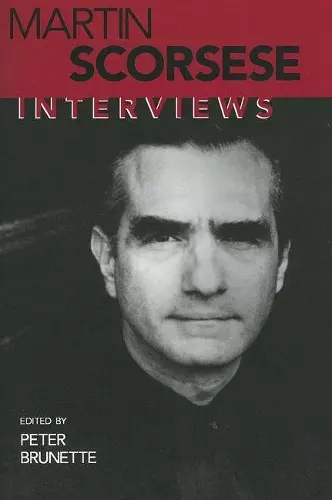Martin Scorsese
Interviews
Format:Paperback
Publisher:University Press of Mississippi
Published:30th Jan '99
Currently unavailable, and unfortunately no date known when it will be back

From the moment he captured the film world's attention with Mean Streets (1973), a portrait of life at the fringes of the Mob, it was clear that a dazzling cinematic talent had arrived on the scene. With Robert DeNiro, one of the most talented young actors from this film, Scorsese went on to make some of the greatest American films of the postwar period, including Taxi Driver (1976), Raging Bull (1980), and Goodfellas (1990). A Scorsese film seldom fails to stir controversy, for his devotion to realism has led him to forthrightly depict violence and its frightening randomness in the modern world. His biblical film also created quite a stir. This adaptation of Kazantzakis's The Last Temptation of Christ generated outrage among conservative religious leaders. Scorsese, however, has not limited himself to contemporary, violent urban dramas or new interpretations of biblical subjects. Other widely heralded Scorsese films include Alice Doesn't Live Here Anymore (1974), New York, New York (1977), The Last Waltz (1978), The King of Comedy (1983), After Hours (1985), The Color of Money (1986), Cape Fear (1991), The Age of Innocence (1993), Casino (1995), and Kundun (1998). These interviews begin with conversations about the highly autobiographical Mean Streets (1973), which first brought Scorsese serious attention, and end with conversations about Kundun, an overtly political biography of the Dalai Lama of Tibet, released in early 1998. ""I look for a thematic idea running through my movies, he says, and I see that it's the outsider struggling for recognition. I realize that all my life I've been an outsider, and above all, being lonely but never realizing it."" Peter Brunette , a professor of English and film studies at George Mason University, is the author of Roberto Rossellini and (forthcoming) The Films of Michelangelo Antonioni. With David Wills he co-authored Screen/Play: Derrida and Film Theory.
ISBN: 9781578060726
Dimensions: 228mm x 148mm x 23mm
Weight: 487g
277 pages